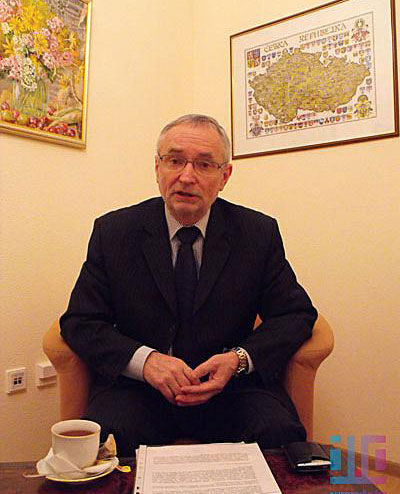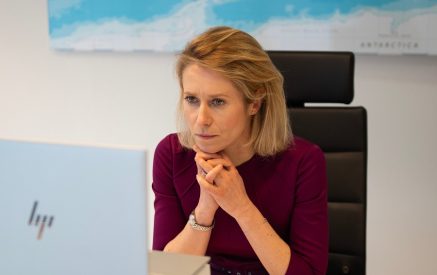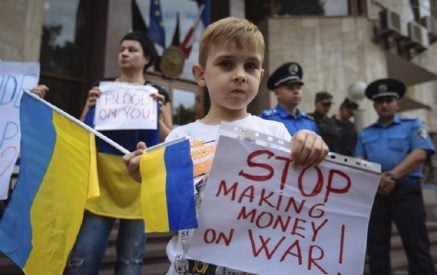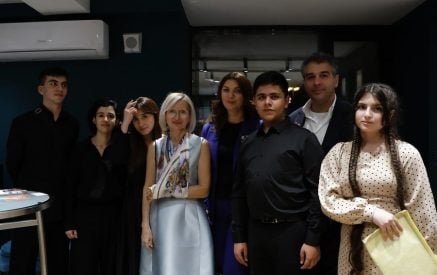Said Ambassador Peter Mares, Special Envoy for the Eastern Partnership of the MFA of the Czech Republic, in the interview Aravot.am regarding the Armenia-EU relationship.
– During its 20-year history of independence, Armenia was pursuing a complementary policy, which seems to have become impossible, because, on the one hand, quite active negotiations are underway between the EU and Armenia, in the framework of the Association Agreement, on the other hand, there is the issue of Eurasia Union in the process of creation. What do you think does Armenia currently have the problem of choice?
I am sure that it is not a problem for Armenia, which should put into the action now. But, of course, if Armenia signs the Association Agreement, and Deep and Comprehensive Free Trade Agreement, Armenia will appear in the situation to choose as to actually what values to adhere to, the EU, or the Eurasian Union. At the same time, it’s hard to say what will happen, let’s say, five years from now, because Customs Union is starting to become more like the European standards. And if we refer to a specific business sector, the Customs Union, namely Belarus, Kazakhstan and RF, are seeking to collaborate with Europe. So, chances are that the Customs Union is much closer to the European standards. Of course, it is difficult to make a choice, because when the EU is making recommendations, in this case, roughly speaking, you have to pay for them, on the other hand, other proposals are made. But one thing I can say for sure that at this point EU does not press Armenia in making any strategic decision.
– Then how do you explain in the past one year, the tough statements made by various EU officials when the possible membership of Armenia to Customs Union and created Eurasian Union was discussed.
Read also
– My words will not come into conflict with these statements. Of course, it is impossible to simultaneously be a member of two different unions. But if Armenia is going to be an associated member to the EU, it does not mean that it will become an enemy of Russia. At the same time, if Armenia becomes an associate member of the EU, it should comply with the European standards. EU will not be able to compromise, because, let’s say, if Armenia becomes a member of a Customs Union and buy water from RF, which will be imported to Armeni without taxes, at the same time, Armenia will not be able to cooperate with the EU and to buy and sell the same water without taxes. There is, of course, a political issue between the EU and the Customs Union, but technical questions are also an obstacle. Armenia, yes, should have to choose, but people in Brussels understand that this is a complicated issue, and now it’s difficult to make that choice.
– Armenia has unresolved issue with Nagorno-Karabakh. Being an EU associate member, how it will contribute to the peaceful settlement of the problem.
– NK did not constitute a part during the negotiations on the Association Agreement, and did not participate in the negotiations. This means that NK is not going to be a part of this agreement, which, in its turn, means that neither Armenia nor the EU can not solve this problem within the framework of this agreement.
– I mean Armenia being an associate member of the EU, how it will contribute to the development of military operations in Karabakh-Azerbaijani contact line. The conflict was not discussed during negotiations.
– The negotiations are going on between Armenia and Brussels, I can not say whether there were talks about it in Brussels, or not. But, as I said, the final point, that is, the signing of the Association Agreement, is no way connected with the problem and its solution.
– On one occasion you said in humor that signing of the Association Agreement, Armenia, like the Czech Republic, gets the opportunity to always blame someone for the fact that it snows. You said that once it was Vienna, Moscow, now Brussels. If you just try to look for someone guilty, what’s the difference whether it will be Vienna, Moscow and Brussels.
– There is an important difference, humor is better understood in Brussels than in Moscow.
– During the recent discussion organized by the “AnalyticalCenter on Globalization and Regional Cooperation”, speaking of Armenia-Turkey relations, you remembered the CzechRepublic and Germany, once pretty painful story. “Czechs decided that there is no other way than to go back to Europe. The results are astounding. Today we have a Deputy Foreign Minister, who was a very dear and acceptable person by the society of Czech and origins from a German family. The history can play a very important role, we have a Czech-German commission, in which there is no political figure included. The historians are working and open very painful pages of our relationship and represents them all. You need years for it. Do it. It will help.”- said you. Meanwhile, the existence of the commission of historians in the Turkish-Armenian protocols was received hostile by the Armenian opposition.
– In the case of the CzechRepublic and Germany, the Commission worked very effectively and without political influence. True, it was not an easy process, it lasted 20 years, but it was also helpful to the peace and public discussions. Members of the committee came to the conclusion that an atmosphere of friendly and mutual understanding was established between the two societies. And when people were asking about what the Germans did during the World War II, or the Czech after it, the answers were given not by the politicians, who have their own goals and interests, but historians and experts, who were giving more objective and comprehensive answers.
– The CzechRepublic was facing Germany, who was ready to accept that one-time leaders of his country have committed genocide, and Armenia is facing Turkey, which, as you also have noticed during the discussion does not inspire much hope; under these conditions, Turkey’s aspirations for EU membership, how can they change that country.
– I do not know, but I am sure that the European Union is ready to preach and promote open discussions that will result in the wounds to be cured. I understand that the situation in the South Caucasus is much more complicated than in Central Europe, but I am sure that this method can help.
Interviewer Nelly GRIGORYAN
“Aravot” daily























































